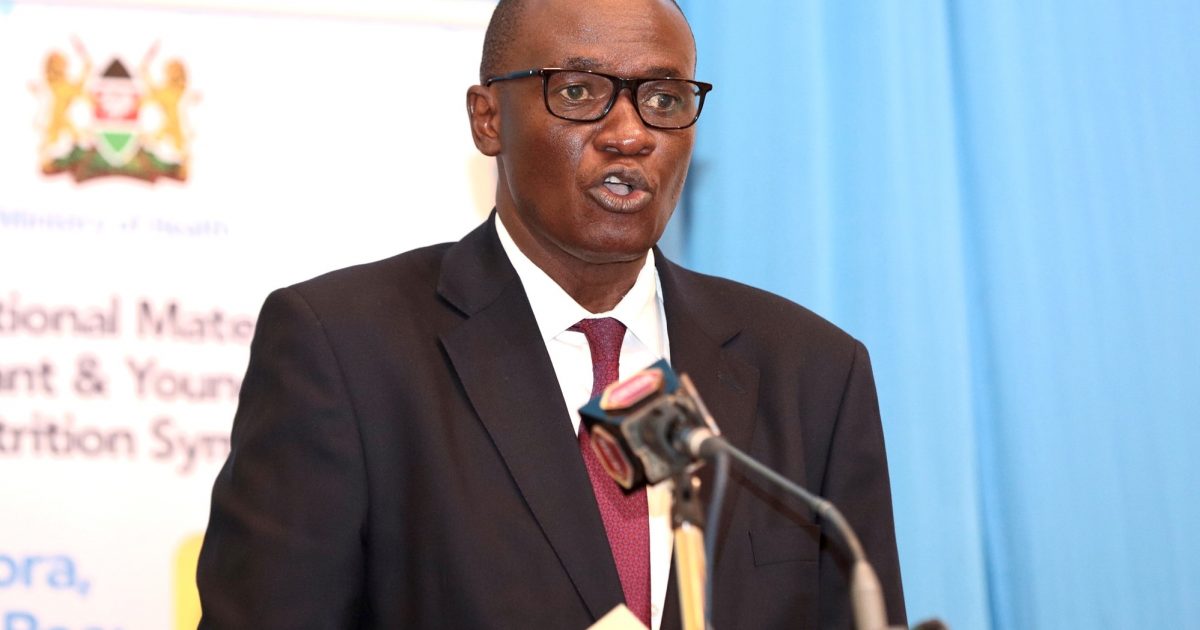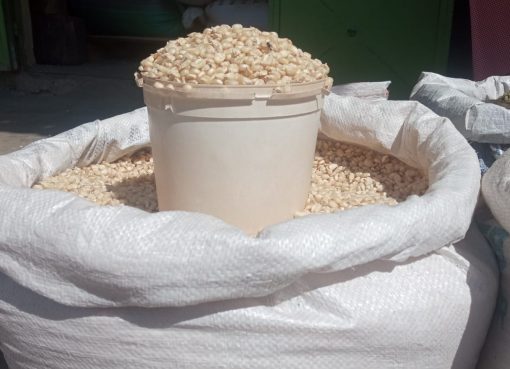The Ministry of Health in collaboration with other stakeholders has launched the first National Maternal, Infant and Young Child Nutrition (MIYCN) Symposium.
The three-day event aims at sharing evidence on addressing MIYCN from a multi sectoral perspective with a focus on complementary feeding.
The symposium will also provide a platform for identification of gaps, priorities, and opportunities for the framework of action on complementary feeding and expanded family diets and further generate learnings that will inform policy and programming on MIYCN.
Speaking on Tuesday during the launch, Acting Director General for Health Dr Patrick Amoth said that good health and nutrition play an important role in the economic growth, poverty reduction and the realisation of social goals in line with Kenyan Vision 2030.
In Kenya, Amoth said malnutrition is a leading cause of infant and child morbidity, mortality and hospital admission, a situation that urgently requires stakeholders’ interventions.
According to the 2019 Social and Economic Effects of Child Undernutrition Kenya Country Report, in 2014 our economy lost Sh 373.9 billion or 6.9 percent of the gross domestic product due to health, education and productivity related costs associated with child undernutrition.
Further, Amoth said the report projected that reducing the prevalence of stunting from 26 per cent in 2014 to 14.7 per cent the target for Vision 2030, would yield a cost decrease in economic losses due to child undernutrition of up to 40.7 per cent.
“If sustainable achievements in child survival, growth, development and subsequently the social and economic growth are to be attained, there is need for increased attention and commitment towards interventions to improve maternal, infant and young child nutrition,” said Amoth.
He noted that there is sufficient evidence that investing in maternal, infant and young child nutrition contributes to improved health outcomes and social and economic development.
The Ag DG said the Ministry of Health has provided a strong policy and legislative framework for improving Maternal, Infant and Young Child Nutrition including the Health Act, 2017, National Food and Nutrition Security Policy (2012), Kenya Health Policy 2014-2030, Kenya Health Sector Strategic Plan 2018-2023, Kenya Nutrition Action Plan (2018-2022), Kenya Primary Health Care Strategic framework 2019-2024, Kenya Community Health Policy 2020-2030, the Breast Milk Substitutes Act, 2012 and related Regulations among others.
Further, Dr Amoth said the Ministry has disseminated the policies, guidelines and legislations to the counties to ensure standardised quality health services noting that maternal infant and young child nutrition interventions also require sustained social and behaviour change and the Ministry has continued to strengthen the Community Health Strategy.
“In order to enhance social and behaviour change in regard to maternal infant and young child nutrition, the Ministry is promoting Baby Friendly Community Initiative (BFCI) which aims at empowering communities to promote, protect and support breastfeeding, appropriate complementary feeding and maternal nutrition, environmental sanitation and hygiene,” cited Dr Amoth.
In his remarks, Nutrition Manager, United Nations Children’s Fund (UNICEF) Kenya, Abiud Omwega stated that according to the Lancet Series, 2013 landmark papers on maternal and child undernutrition indicated the critical role of early nutrition in the health of children, making it clear that the golden period of intervention for nutrition is between pregnancy and 24 months.
Globally, Omwega noted that undernutrition is responsible for up to 45 percent of deaths in children under 5 years old and is a significant cause of morbidity in this age group.
“In Kenya, only 22 per cent of children aged 6-23 months are receiving a minimal acceptable diet and just 41 per cent consume the recommended number of food groups,” said Omwega.
He noted that according to a comprehensive nutrient gap analysis conducted by the government with support from UNICEF, showed that young children in Kenya lack the essential nutrients Iron and Zinc.
By Catherine Muindi and Audrey Cherotich





